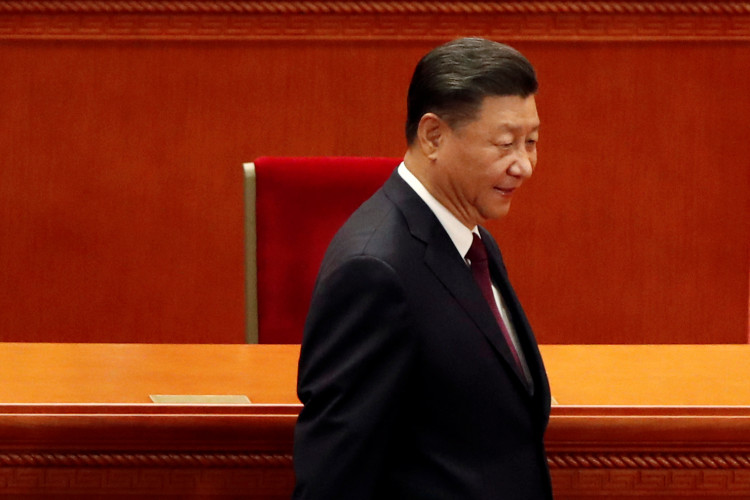Xi Jinping, general secretary of the Communist Party of China (CPC) Central Committee and chairman of the Central Military Commission (CMC), on Monday signed a mobilization order ramping-up combat training for all five service branches of the People's Liberation Army (PLA).
Xi is ordering more military training take place under real combat conditions. This training must focus on enhancing the ability of the PLA to win in battle against the United States. It also encourages the PLA to maintain a high level of combat readiness to prepare for combat at a moment's notice.
More important, the order wants significant improvements in the PLA's capability for integrated and joint operations, which is currently the source of its greatest tactical weakness. It also underscores the PLA's long-held doctrine that technology is a core combat capability vital to victory on the battlefield.
Along this line, Xi wants China's military-industrial complex to increase their scientific and technological literacy and apply new weaponry in training.
Reminding the PLA that 2021 marks the 100th anniversary of the founding of the CPC, the order requires the entire armed forces to promote a fierce fighting spirit and accomplish tasks assigned it by the CPC in this new era.
Xi's unexpected order follows by only two days the public revelation of the revised National Defense Law that weakened the role of the State Council, which is China's cabinet, in formulating military policy, while handing the key power to make war to the CMC headed by Xi. The changes, in effect, remove the PLA from any civilian control.
The revisions also give Xi the legal grounds to make war in defense of China's national interests, whose definition has been expanded to include "disruption" and the protection of China's "development interests."
Chinese military analysts said the changes to the National Defense Law are in response to the accelerating pace of military confrontations between China and the United States.
"The CMC is now formally in charge of making national defense policy and principles, while the State Council becomes a mere implementing agency to provide support to the military," said Zeng Zhiping, a military law expert at Soochow University in Suzhou province.
Zeng said one of the most important changes to the law is downgrading the State Council's role in formulating the principles of China's national defense. The changes also remove from the State Council the right to direct and administer the mobilization of the PLA. On the other hand, the amendments strengthen China's military leadership under Xi.
"It's a big contrast when compared with developed countries like Israel, Germany and France, which prefer to put their armed forces under civilian leadership. Even in the US, the civilian-led defense ministry plays a more important role than their military top brass, the Joint Chiefs of Staff," according to Zeng.
The amended law emphasizes the need to build a nationwide coordination mechanism mobilizing state-owned and private enterprises, called military-civilian fusion, to develop new military technologies covering conventional weapons, as well as non-traditional warfighting domains such cybersecurity and space.






